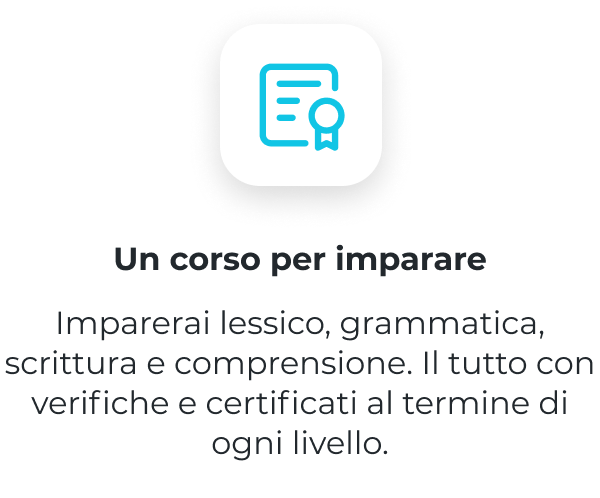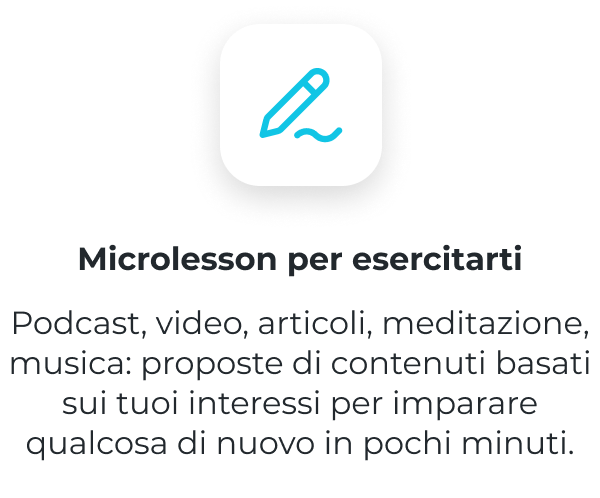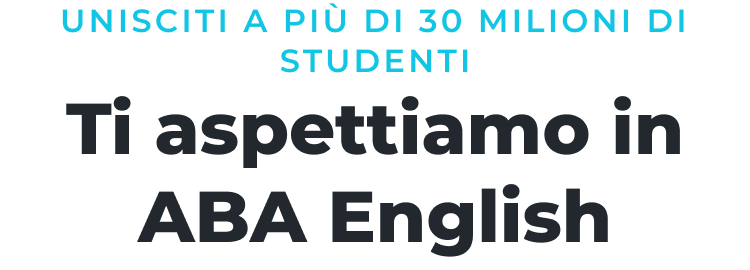Verbo essere in inglese
Il verbo essere è la spina dorsale dell’apprendimento dell’inglese. Impara a usare to be e molti altri verbi con ABA English e registrati gratuitamente al nostro corso per imparare l’inglese in modo pratico e divertente.
In questo breve riassunto dell’uso del verbo to be condividiamo con te di cosa si tratta, quando e come usarlo e ti forniamo una tabella della coniugazione affinché sia molto chiaro.
Cos’è il verbo to be
Il verbo to be, il cui significato è “essere, stare o avere”, a seconda del contesto, è sicuramente il verbo più usato nella lingua inglese e anche il più importante. Si usa come verbo principale e come ausiliare ed è irregolare nel passato e nel presente.
Per questo motivo, è molto importante conoscere perfettamente questo verbo, indipendentemente dal suo tempo verbale o con quale pronome personale deve coniugarsi.
Come si usa il verbo essere in inglese
Quando inizi a studiare l’inglese troverai molte frasi che hanno il verbo to be, con significati diversi, e potrebbe essere un po’ difficile distinguerle. Presta attenzione alle basi che devi conoscere sulla coniugazione del verbo essere.
Può stare da solo
In sostanza, il verbo essere può stare da solo, ma nella maggior parte dei casi accompagnerà altri verbi nei tempi verbali composti. Ma cominciamo con le basi, diamo un’occhiata alla coniugazione del to be verb.
Presente
Al presente, il verbo si coniuga I am, you are, he/she/it is, e con i pronomi plurali we, you, they si coniuga con are.
Passato
Al passato, la maggior parte dei pronomi si coniugano con were tranne I, he, she, it, che si coniugano con was. Nella forma perfetta (o participio passato) assume la forma been, e nella forma progressiva diventa being.
Verbo to be come ausiliare
Puoi usare il verbo essere in inglese come verbo ausiliare nei tempi verbali continui accompagnati da un verbo gerundio, come si può vedere nei seguenti esempi:
- Jenny is studying a new career. (Jenny sta studiando un nuovo corso di laurea.)
- I was working till late last night. (Lavoravo fino a tardi ieri sera.)
- We were watching TV last Sunday. (Stavamo guardando la TV domenica scorsa.)
Quando si usa il verbo essere in inglese
Di seguito vedrai alcune situazioni nelle quali si può usare il verbo to be in modo corretto:
Descrivere qualcosa o qualcuno
Se vuoi descrivere una persona, il verbo essere sarà molto utile. Guarda il seguente esempio:
- Colin is an accountant. He is a man. He is canadian. His eyes are brown. He is intelligent and very friendly.
- (Colin è un contabile. È uomo. È canadese. I suoi occhi sono marroni. È intelligente e molto amichevole.)
💡 Tieni presente che in inglese per parlare di età non si usa il verbo ‘avere’ (have), ma il verbo essere.
Esempio: (Ho 34 anni.)
- ❌ Incorretto: I have 34 years old.
- ✅ Corretto: I am 34 years old.
Parlare dell’umore di qualcuno
Il verbo essere ti aiuta a descrivere lo stato d’animo di una persona.
- He is angry. (Lui è arrabbiato.)
- You are sad today. (Sei triste oggi.)
- She was tired. (Lei era stanca.)
- They are a bit disappointed. (Loro sono un po’ delusi.)
Parlare del tempo
Puoi usare il verbo to be quando vuoi descrivere la temperatura o il clima di un luogo.
- Manhattan is rainy today. (Oggi piove a Manhattan.)
- The Arctic pole is quite cold. (Il polo artico è piuttosto freddo.)
- Tomorrow will be a sunny day. (Domani sarà una giornata di sole.)
Menzionare una posizione
Puoi parlare della posizione geografica o spaziale di qualcosa o qualcuno.
- Martin is at the university. (Martin è all’università.)
- New Orleans is in the United States. (New Orleans si trova negli Stati Uniti.)
- The keys are under the bed. (Le chiavi sono sotto il letto.)
Registrati gratis e inizia
ora il tuo corso d’inglese.
Coniugazione del verbo to be
Ora diamo una breve occhiata ai tempi verbali del verbo to be in inglese. Ricorda che tutti i tempi verbali hanno forma affermativa, negativa e interrogativa.
Il verbo essere al presente si usa principalmente per riferirsi a qualcosa di vero nel presente o per fornire informazioni di base. Le forme del verbo al presente sono am, is, are.
Il verbo essere al passato si usa per parlare di informazioni reali, fatti o dati accaduti in passato. Il verbo assume la forma di was e were, a seconda del pronome personale con cui si coniuga.
Il verbo essere al futuro usa la forma will be e si usa per parlare di qualcosa che sarà o ci sarà in futuro.
Present Simple (Presente)
| Affirmative | Negative | Interrogative |
| I am | I am not | Am I ? |
| You are | You are not | Are you ? |
| He/She/It is | He/She/It is not | Is he/she/it ? |
| We are | We are not | Are we ? |
| You are | You are not | Are you ? |
| They are | They are not | Are they ? |
Past Simple (Passato)
| Affirmative | Negative | Interrogative |
| I was | I was not | Was I ? |
| You were | You were not | Were you ? |
| He/She/It was | He/She/It was not | Was he/she/it ? |
| We were | We were not | Were we ? |
| You were | You were not | Were you ? |
| They were | They were not | Were they ? |
Future Simple (Futuro Semplice)
| Affirmative | Negative | Interrogative |
| I will be | I will not be | Will I be? |
| You will be | You will not be | Will you be? |
| He/She/It will be | He/She/It will not be | Will he/she/it be? |
| We will be | We will not be | Will we be? |
| You will be | You will not be | Will you be? |
| They will be | They will not be | Will they be? |
Present Perfect Simple (Passato Prossimo)
| Affirmative | Negative | Interrogative |
| I have been | I have not been | Have I been? |
| You have been | You have not been | Have you been? |
| He/She/It has been | He/She/It has not been | Has he/she/it been? |
| We have been | We have not been | Have we been? |
| You have been | You have not been | Have you been? |
| They have been | They have not been | Have they been? |
Past Perfect Simple (Trapassato Prossimo)
| Affirmative | Negative | Interrogative |
| I had been | I had not been | Had I been? |
| You had been | You had not been | Had you been? |
| He/She/It had been | He/She/It had not been | Had he/she/it been? |
| We had been | We had not been | Had we been? |
| You had been | You had not been | Had you been? |
| They had been | They had not been | Had they been? |
Future Perfect (Futuro Anteriore)
| Affirmative | Negative | Interrogative |
| I will have been | I will not have been | Will I have been? |
| You will have been | You will not have been | Will you have been? |
| He/She/It will have been | He/She/It will not have been | Will he/she/it have been? |
| We will have been | We will not have been | Will we have been? |
| You will have been | You will not have been | Will you have been? |
| They will have been | They will not have been | Will they have been? |
Conditional (Condizionale)
| Affirmative | Negative | Interrogative |
| I would be | I would not be | Would I be? |
| You would be | You would not be | Would you be? |
| He/She/It would be | He/She/It would not be | Would he/she/it be? |
| We would be | We would not be | Would we be? |
| You would be | You would not be | Would you be? |
| They would be | They would not be | Would they be? |
Conditional Perfect (Condizionale Passato)
| Affirmative | Negative | Interrogative |
| I would have been | I would not have been | Would I have been? |
| You would have been | You would not have been | Would you have been? |
| He/She/It would have been | He/She/It would not have been | Would he/she/it have been? |
| We would have been | We would not have been | Would we have been? |
| You would have been | You would not have been | Would you have been? |
| They would have been | They would not have been | Would they have been? |
Sai già qual è il tuo livello d’inglese?
Fai subito un test
Registrati nella nostra pagina e accedi gratuitamente al test di livello. Scoprirai il tuo punto di partenza in pochi minuti e potrai continuare ad avanzare con il corso.
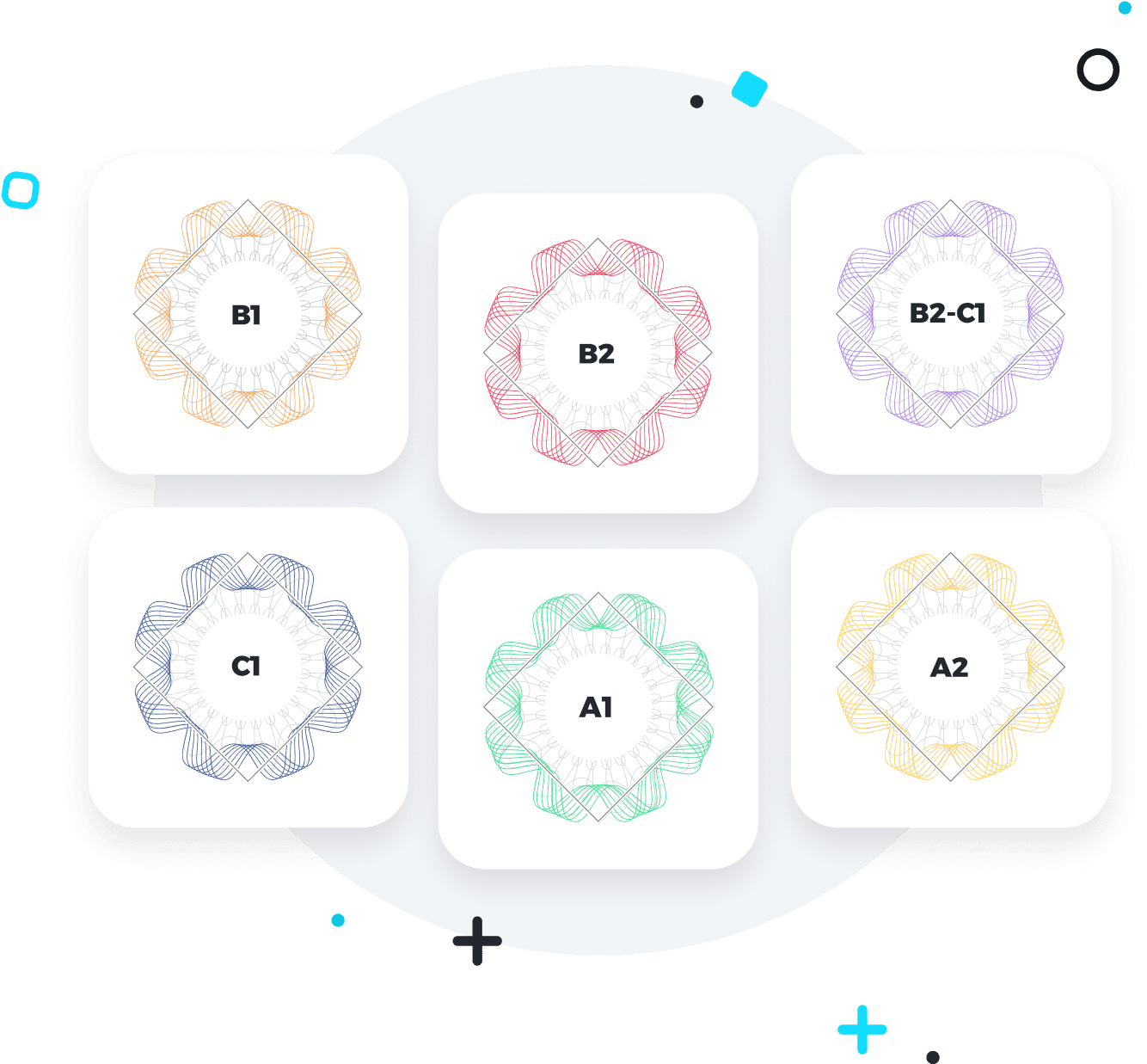
Esercizi in inglese sul verbo essere
È il momento di mettere in pratica le conoscenze di questa lezione. Completa le seguenti frasi con la risposta corretta:
- We ____ starting a new project. (Stiamo iniziando un nuovo progetto.)
- They _____ near Main Avenue. (Erano vicini all’Avenida Main.)
- He ____ a tall guy. (È un uomo alto.)
- I will ___ a famous tennis player some day. (Un giorno diventerò un famoso tennista.)
- Yesterday _____ a cloudy day. (Ieri è stata una giornata nuvolosa.)
- You ____ 24 years old a year ago. (Un anno fa avevi 24 anni.)
Risposte:
- are
- were
- is
- be
- was
- were
Altri link utili


